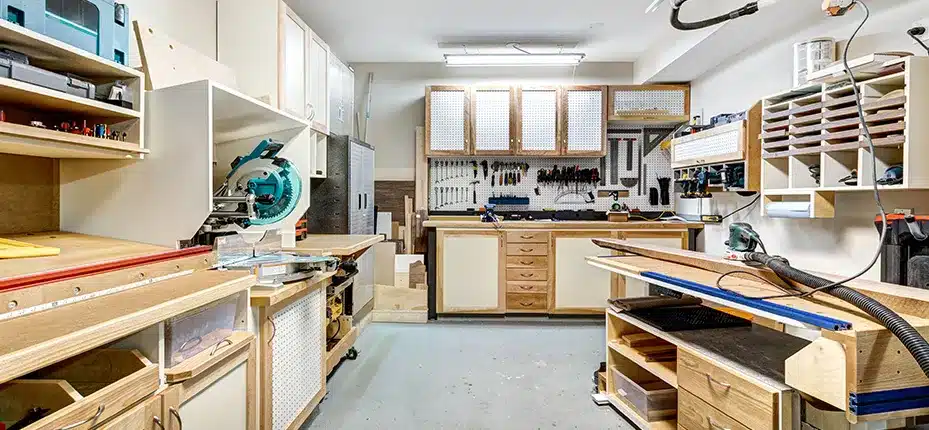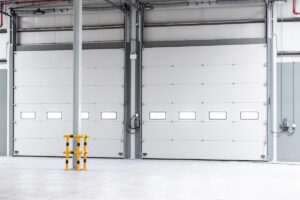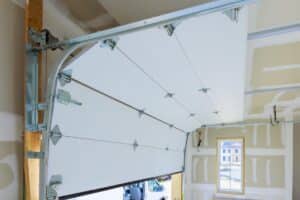When it comes to home improvement projects, the garage is often overlooked, especially in terms of ventilation. Yet, ensuring proper ventilation in your garage is essential for maintaining air quality and comfort. Without adequate ventilation, your garage can become a breeding ground for pollutants, odors, and even hazardous fumes from vehicles or stored chemicals.
Poor ventilation can lead to uncomfortable temperature extremes, making it less than ideal for various activities. In this blog post, we’ll explore some effective garage ventilation solutions to help you create a safer and more comfortable environment.
Why Garage Ventilation Matters
The importance of proper ventilation in a garage cannot be overstated. Not only does it help prevent the buildup of harmful pollutants and odors, but it also ensures a more comfortable atmosphere for working or spending time in the garage.
Without adequate ventilation, the air can become stagnant and filled with contaminants, posing health risks to anyone who enters the space. Poor ventilation can also lead to temperature extremes, with the garage becoming unbearably hot in the summer and frigidly cold in the winter.
Health Benefits
Proper ventilation helps to reduce the concentration of harmful pollutants such as carbon monoxide, volatile organic compounds (VOCs), and other hazardous fumes. This is particularly crucial if you use your garage for DIY projects, hobbies, or as a workshop, where exposure to toxic substances can be frequent. Improved air quality can significantly reduce respiratory issues, headaches, and long-term health risks.
Comfort and Usability
A well-ventilated garage can be used for more than just parking your car. It can become a versatile space for hobbies, a home gym, or even a play area for children. Proper ventilation ensures that the space remains comfortable throughout the year, allowing you to make the most out of this often underutilized area of your home.

Tips for Effective Garage Ventilation
Install Exhaust Fans
One of the most effective ways to improve garage ventilation is by installing exhaust fans. These fans help remove stale air and pollutants from the garage, promoting better air circulation. Consider installing a combination of ceiling-mounted and wall-mounted exhaust fans to ensure optimal airflow throughout the space.
Natural Ventilation
Take advantage of natural ventilation methods such as windows, vents, and doors to allow fresh air to enter the garage. Keep windows and vents open whenever possible, especially during mild weather conditions, to promote airflow and reduce humidity levels.
Air Purifiers
Consider investing in an air purifier equipped with a HEPA filter to help remove airborne particles and improve air quality in the garage. Place the air purifier in a central location for maximum effectiveness, and be sure to choose a model that is appropriate for the size of your garage.
Proper Insulation
Insulating your garage can help regulate temperature and humidity levels, making it more comfortable year-round. Choose insulation materials that are suitable for garage spaces, such as foam board or fiberglass batts, and be sure to insulate both the walls and ceiling for maximum effectiveness.
Regular Maintenance
Don’t forget to regularly maintain your garage ventilation systems to ensure they continue to operate efficiently. Clean or replace air filters as needed, inspect exhaust fans for any signs of wear or damage, and keep vents clear of debris or obstructions.

Other Solutions for Better Ventilation
Dehumidifiers
For garages that tend to be more humid, a dehumidifier can be a great addition to control moisture levels. High humidity can lead to mold and mildew growth, which can damage stored items and affect the air quality. A dehumidifier helps keep the environment dry and comfortable.
Garage Door Vents
Installing vents in your garage door can be a simple yet effective solution to improve airflow. These vents allow fresh air to enter and circulate, helping to reduce heat and humidity levels inside the garage.
Cross Ventilation
Creating cross ventilation by positioning vents or windows on opposite sides of the garage can significantly enhance airflow. This setup allows fresh air to enter from one side and stale air to exit from the other, ensuring a continuous exchange of air.
Smart Ventilation Systems
Consider investing in smart ventilation systems that can automatically adjust based on temperature, humidity, and air quality levels. These systems can be controlled via smartphone apps, offering convenience and efficiency in maintaining optimal garage conditions.
Proper garage ventilation is essential for maintaining air quality and comfort in your home. By following the tips outlined in this blog post, you can create a safer and more comfortable environment in your garage for you and your family. Whether you choose to install exhaust fans, utilize natural ventilation methods, or invest in an air purifier, taking steps to improve garage ventilation will pay off in the long run.
Remember to prioritize regular maintenance to keep your ventilation systems operating at peak efficiency. With these solutions in place, you can enjoy a healthier and more comfortable garage space for years to come.
For more information on garage ventilation and other home improvement tips, be sure to check out our other blog posts and resources. Your garage is an important part of your home, and with the right ventilation solutions, you can transform it into a safe, comfortable, and versatile space,
FAQs
Garage ventilation helps prevent the buildup of harmful pollutants and odors, ensuring a healthier and more comfortable environment.
Poor ventilation can lead to respiratory issues and headaches due to the accumulation of pollutants like carbon monoxide and volatile organic compounds (VOCs).
Effective methods include installing exhaust fans, using natural ventilation, and adding air purifiers.
Yes, proper insulation can help regulate temperature and humidity, enhancing overall ventilation efficiency.
Regular maintenance should be performed periodically, such as cleaning or replacing air filters and inspecting exhaust fans for wear or damage.
Yes, dehumidifiers can control moisture levels, preventing mold and mildew growth in humid garages.








